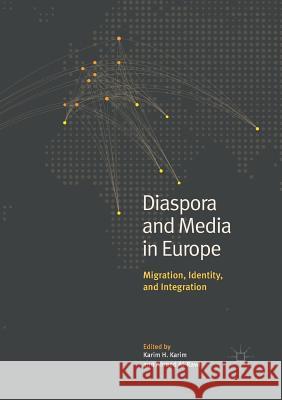Diaspora and Media in Europe: Migration, Identity, and Integration » książka
topmenu
Diaspora and Media in Europe: Migration, Identity, and Integration
ISBN-13: 9783319880327 / Angielski / Miękka / 2019 / 192 str.
Kategorie:
Kategorie BISAC:
Wydawca:
Palgrave MacMillan
Język:
Angielski
ISBN-13:
9783319880327
Rok wydania:
2019
Wydanie:
Softcover Repri
Ilość stron:
192
Waga:
0.25 kg
Wymiary:
21.01 x 14.81 x 1.12
Oprawa:
Miękka
Wolumenów:
01
Dodatkowe informacje:
Wydanie ilustrowane











